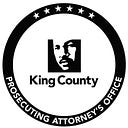WARNING: Phone Scam Reported
**updated on 8/2/23***
The King County Prosecuting Attorney’s Office has learned of a new phone scam targeting area residents. Victims have reported receiving phone calls from individuals claiming to be law enforcement officers or King County Sheriff’s Office deputies. The caller claims that the victim of the call has failed to appear in court to testify as a witness or has failed to respond to a subpoena. The caller then claims that a judge has issued a civil fine, a criminal contempt of court citation, and/or an arrest warrant for the recipient. The caller claims that the only way for the recipient to resolve the matter is to pay a significant amount of money via Zelle (or a similar money transfer product) or officers will find and arrest them.
These scam callers can take significant steps to appear legitimate:
· They identify themselves as law enforcement officers and provide names and badge numbers, including information that may belong to real officers;
· They have additional scammers pose as other officers and have them make separate calls to reinforce the fraud, including posing as the initial caller’s superior calling to “confirm” the initial information;
· They “spoof” a legitimate phone number so that the recipient’s phone handset indicates that the call is actually coming from the Sheriff’s Office;
· They reference a fake cause number, claiming it’s the case that the recipient was supposedly subpoenaed to testify in;
· They claim that the recipient had been served with legal papers at an address that the recipient actually has a current or past association with (for example, a former address or currently owned rental property);
· They initially tell the recipient that they need to physically come to the courthouse to check-in with the sheriff or appear before a judge. They then switch to the claim that money needs to be paid.
THIS IS A SCAM. The King County Sheriff’s Office will not ask you for money over the phone under any circumstances and will not tell you in advance that they are coming to arrest you. Please hang-up and treat the call as you would any fraudulent request or demand.
Similar scams — with some variations — happened back in early 2021 and mid-2020.
If you receive one of these calls, here are additional steps you can take:
· Don’t panic. The scammers making these calls are intentionally using high pressure tactics to create a sense of urgency in order to get you to act without thinking. This threat is not legitimate. Even if you take no action you will not be arrested or charged with a crime.
· If you still have questions about the legitimacy of the call, directly contact the law enforcement agency the caller claims to be from. If you choose to do this, remember that the call you received may have come from a number that has been “spoofed,” so independently confirm the correct phone number and call it by manually entering the number into your phone. Do not simply use your phone’s redial function or click on a link provided. The King County Sheriff’s Office 24-hour non-emergency phone number is 206–296–3311.
· Write down any information you can gather about the call. This may include the time you received it, what number showed on your called ID and any statements made by the fraudulent caller. While a recording of the conversation may be helpful to law enforcement, in Washington it is illegal to record someone without first telling them the conversation will be recorded. So, if you decide to record the call, give them notice, turn on the recorder, and then repeat your notice.
· Contact your local law enforcement agency to report the attempted fraud. The non-emergency number for the Seattle Police Department, for example, is 206–625–5011, and you also can make a report online. Save the documentation regarding the report after you’ve filed it.
· The Federal Trade Commission has launched a new website designed to make it easier for people to report potential frauds to federal authorities and get quick advice on what to do. The new website at ReportFraud.ftc.gov has a feature that prompts those reporting a fraud to the “next steps” that will offer specific guidance based on the kind of scam reported.
· If the King County Prosecuting Attorney’s Office has actually charged you with a crime notify your attorney.
· If you actually have been legitimately served with a subpoena, check-in with the attorney or court that issued it.
